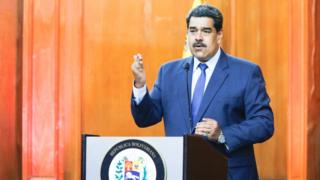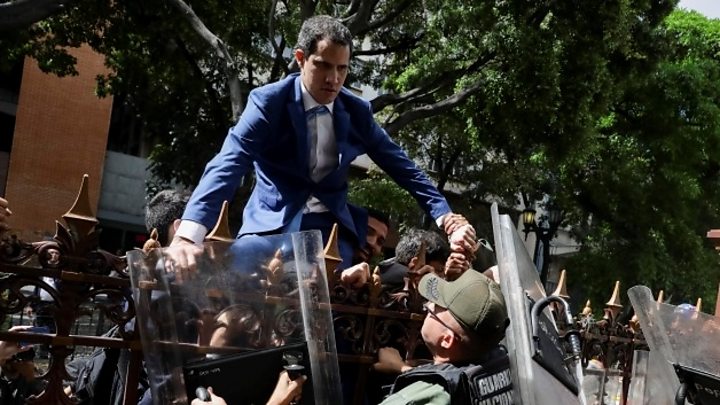This website uses cookies so that we can provide you with the best user experience possible. Cookie information is stored in your browser and performs functions such as recognising you when you return to our website and helping our team to understand which sections of the website you find most interesting and useful.
 Image copyright EPA
Image copyright EPAVenezuela's President Nicolás Maduro has ordered the European Union's ambassador to leave the country within 72 hours.
Isabel Brilhante Pedrosa's expulsion came hours after the EU placed sanctions on 11 Venezuelan officials.
They were sanctioned for acting against the national assembly headed by opposition leader Juan Guaidó.
Mr Guaidó declared himself interim president last year but has failed to remove Mr Maduro.
The opposition leader has the backing of the EU and the US.
In his announcement on Monday broadcast on state television, speaking of the EU, Mr Maduro said: "If they can't respect Venezuela, then they should leave it."
He added: "A plane can be loaned for her [Pedrosa] to leave." Venezuela's air space is currently closed due to the coronavirus pandemic.
Earlier on Monday, the European Council said the 11 officials were added to the sanctions list "because of their role in acts and decisions undermining democracy and the rule of law in Venezuela".
There are now 36 Venezuelan officials who have been placed under EU sanctions, it said.
Those newly-added to the list include Luis Parra, who in January declared that he, not Mr Guaidó, was the rightful Speaker of the assembly.
Mr Guaidó declared himself interim president last year, arguing that Mr Maduro's 2018 re-election was illegitimate. His position at the head of the opposition-led National Assembly was the basis of his claim to be Venezuela's legitimate head of state.
He is recognised as such by more than 50 countries, including the US, the UK and most in Latin America and the EU
Speaking on Monday, Mr Maduro said the EU "recognises a puppet as president".
Some four million people have fled Venezuela since 2015, according to the United Nations, amid a severe years-long political and economic crisis. The oil-rich country suffers from high unemployment and shortages of food and medicine, and hundreds of thousands of people are said to be in need of humanitarian aid.

Media playback is unsupported on your device



 Africana55 Radio
Africana55 Radio 
